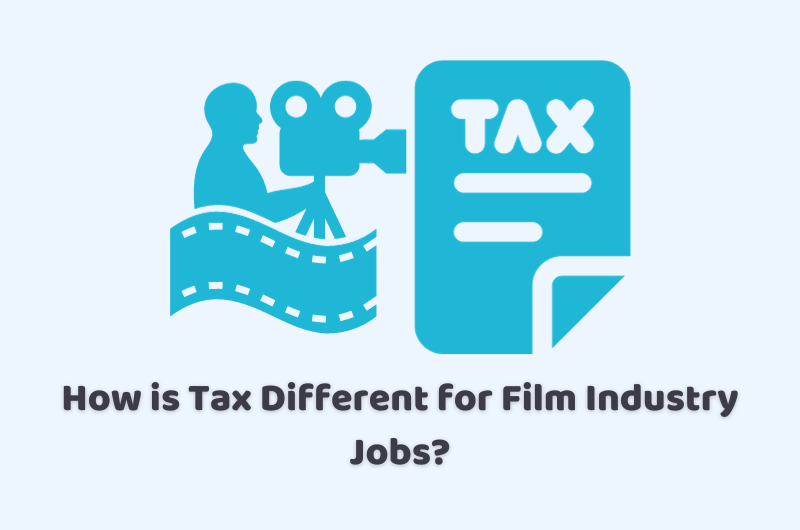
29/11/2023tax , Tax Issues , Tax News and Tips , Tax Saving Tips
Let’s dive into the exciting world of the tax on film industry jobs. Tax treatment for film industry jobs in the UK can vary depending on different factors like employment status and the type of work being done. Whether you’re an employee on PAYE or a freelance/self-employed worker, the tax process can differ. It’s important to understand these differences and how they can impact your financial situation. So, let’s explore the ins and outs of how taxes work for film industry jobs in the UK.
Talk to our best accountants and bookkeepers in the UK at CruseBurke. You will get instant help with tax on film industry jobs whether you are running a small or large business.
What is PAYE for Employees Connected to the Film Industry Jobs?
PAYE is a system used in the UK to collect income tax and National Insurance contributions from employees’ salaries. In the film industry, employees who are part of a production company or work for a film studio are typically paid through the PAYE system. This means that their employer deducts income tax and National Insurance contributions from their salary before paying it to them. The deductions are based on the employee’s tax code, which takes into account their personal allowance and any other factors that may affect their tax liability.
The employer is responsible for reporting and paying these deductions to HM Revenue and Customs (HMRC) on behalf of their employees. This system ensures that employees’ tax obligations are met throughout the year, rather than having to pay a lump sum at the end. It’s important for employees in the film industry to keep track of their payslips and P60 forms, which summarise their earnings and deductions for the tax year. This information is crucial for accurately completing their self-assessment tax return if required.
Film Industry Jobs – Are These the Same as Common Employment?
When it comes to employment in the film industry, jobs are generally treated the same as employment in other industries in terms of tax and National Insurance contributions. Employees in the film industry, just like employees in any other sector, are subject to the PAYE system.
The employer is responsible for reporting and paying these deductions to HMRC on behalf of their employees. Employees in the film industry should receive payslips and P60 forms, which provide a summary of their earnings and deductions for the tax year. These documents are important for accurately completing any necessary tax returns.
What are Employee Benefits in the Film Industry?
Employees in the film industry can enjoy a range of benefits. It can be incredibly fulfilling to contribute to the creation of movies, TV shows, or other forms of visual media. Additionally, employees in the film industry may have the chance to work with talented and passionate individuals, including actors, directors, and production crews.
Moreover, the film industry offers a dynamic and ever-changing work environment, with different projects and locations. This can make the job exciting and keep things fresh. Lastly, employees in the film industry may have access to certain perks such as attending film premieres, industry events, or even receiving recognition for their work through awards and accolades.
Are There any Jobs in the Film Industry that are not PAYE?
There are film industry jobs in the UK that are not PAYE. Some individuals in the film industry may work as freelancers or independent contractors, which means they are not directly employed by a production company or studio. It’s important for freelancers in the film industry to keep track of their earnings, expenses, and relevant documentation to ensure compliance with tax regulations.
Deduction of Film and TV Industry Expenses for Self-Employed Workers
Deductions for self-employed workers in the film and TV industry in the UK, there are specific expenses that can be claimed to reduce taxable income. These expenses can include costs directly related to the production or creation of films or TV shows, such as equipment rentals, props, costumes, and location fees. Additionally, expenses for travel and accommodation during production, as well as meals and refreshments for the cast and crew, may also be deductible. Other eligible expenses may include professional fees for agents or managers, advertising and marketing costs, and insurance premiums.
How is a Tax on Film Industry Jobs Different?
If you’re a freelance or self-employed worker in the film industry, the tax process can vary. As a self-employed individual, you’ll be responsible for managing your own taxes and National Insurance contributions. You may also be eligible to claim deductions for expenses directly related to your work, such as equipment rentals, travel costs, and other production-related expenses. Understanding the specific tax requirements for film industry jobs can help you navigate the financial aspects of your work more effectively.
The Bottom Line
To wind up the discussion about tax on film industry jobs, we can say that deductions for self-employed workers in the film and TV industry in the UK, there are specific expenses that can be claimed to reduce taxable income. These expenses can include costs directly related to the production or creation of films or TV shows, such as equipment rentals, props, costumes, and location fees.
Additionally, expenses for travel and accommodation during production, as well as meals and refreshments for the cast and crew, may also be deductible. Other eligible expenses may include professional fees for agents or managers, advertising and marketing costs, and insurance premiums.
Are you seeking professional help to know the tax on film industry jobs? Why not get help from the experts at the CruseBurke? Talk to us now and we will get back to you instantly.
Disclaimer: The information about tax on film industry jobs provided in this blog includes text and graphics of general nature. It does not intend to disregard any of the professional advice.
